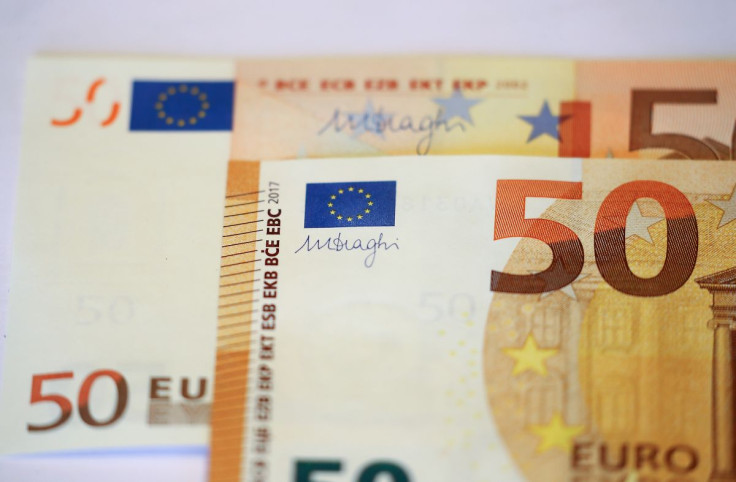Asian Stocks Tick Up As Investors Weigh Recession Risks

Asian stocks managed gradual gains on Thursday as investors grappled with the risks of a recession and a potential pause in interest rate hikes, while the euro traded at a two-year low and oil began to claw back overnight losses.
MSCI's broadest index of Asia-Pacific shares outside Japan edged up from a two-month low and had risen 1.02% by the afternoon. Japan's Nikkei closed up 1.47%.
South Korea's KOSPI index gained 1.92%, its best day in nearly two weeks, with Samsung Electronics one of the biggest movers after reporting earnings guidance that suggested a rebound for its chip business.
The Australia and New Zealand dollars scraped themselves from two-year lows, gaining 0.51% and 0.54% respectively.
FTSE futures were up 1.16% and Euro STOXX futures were up 1.17% ahead of European markets opening. S&P 500 futures were up 0.31%.
The S&P 500 index had risen 0.4% at the close on Wednesday and Treasuries dropped as traders reacted to generally positive U.S. economic data, which showed solid job openings, and hawkish minutes from the June Federal Reserve meeting.
Benchmark U.S. 10-year yields were last at 2.917%, having fallen from a more than 11-year high of 3.498% on June 14th.
"The coincidence of fairly hot job market data and far more resilient ISM services ... further underpins the point that the Fed is unlikely to step down the pace and intensity of tightening," said Mizuho economist Vishnu Varathan.
The U.S. data showed job openings higher than expected and the services sector holding up. The next big data point comes on Friday when broader labour market numbers can provide a fuller picture of the state of the world's biggest economy.
"The next litmus test for the direction in yields ... will be the speeches by Bullard and Waller - who should shed more light into the thinking of the hawkish camp within the (Fed)," said NatWest Markets' rates strategist Jan Nevruzi.
"Are they leaning into the recessionary fears or continuing to press on that the Fed has to go above neutral as quickly as possible and contain inflation no matter the cost to growth?"
James Bullard, the St Louis Fed President, and Fed Governor Christopher Waller are both due to speak at 1700 GMT.
The global rate tightening seen over recent months, led by the Fed, has stoked recession fears and hurt growth-sensitive commodities such as copper, oil and iron ore. The euro has also been hammered as investors see Europe as ground zero for a global slowdown.
Brent crude futures dipped below $100 a barrel early in the Asia session but recovered and were last at $100.88, down almost 10% for the week so far. Shanghai copper steadied but has lost 20% in a month.
The euro, meanwhile, is fast approaching parity on the dollar and has dived more than 2% so far this week, touching its lowest level since 2002 at $1.0162 and steadying at $1.0211 on Thursday. [FRX/]
Europe's inflation is running at record levels and surging energy prices suggest the upward pressure on consumer prices will remain stiff for a while longer. Reflecting worries about the longevity of Russian gas supply to the west, benchmark Dutch gas prices have doubled since the middle of June.
Year-ahead German electricity prices hit a record overnight.
"It's not just a question of recession, it's a question of how dark it gets in Europe," said Chris Weston, head of research at brokerage Pepperstone in Melbourne. "All the market players that follow trends have just been piling in to euro shorts."
Sterling has recovered slightly, gaining 0.18% on Thursday after falling to a more than two-year low earlier in the week. The British government is in a precarious position after dozens of ministers resigned in protest against Prime Minister Boris Johnson's leadership, but markets don't see much changing if he does quit.
"One reason sterling is not faring too badly is the view that a new Tory government and chancellor will fast-track fiscal easing," said National Australia Bank's head of FX, Ray Attrill. He added that a hawkish tone from the central bank also provided support.
© Copyright Thomson Reuters 2024. All rights reserved.







